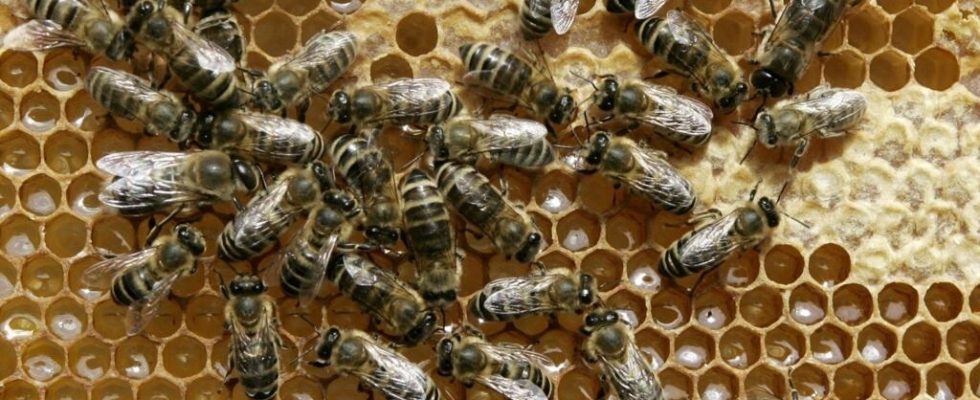World Bee Day is this Saturday, May 20. They are essential for food production, but they are under threat. In France, nearly 30% of bees disappear each winter due to the disruption of our ecosystems. To raise awareness of the issue, La REcyclerie, an ecological place and restaurant in Paris, is organizing the mini-festival “Big Bisou aux abeilles” this weekend. The objective: to recall in a playful way the importance of these pollinators in our ecosystem.
In this former industrial station, pastries and honey drinks parade on the twenty tables of La REcyclerie. But this mom didn’t just come to enjoy a honeyed meal in the sun. ” We are here for my three and a half year old son, to discover bees and hives “, she confides to Tanita Fallet for RFI.
The little boy loves bees, and so does Sébastien. This beekeeper has placed his honey stall here for the weekend, with a message to convey: Beekeeping is introduced to city dwellers. Bees are everywhere, also in town. City dwellers may not be aware of this. »
And all you have to do is look up to find out: La REcyclerie has six beehives on its roof. She offers to visit the place, on the occasion of World Bee Day. There are more than 1,500 plants on the roof, and bees can forage there. Marie-Eugenie Chanvillard, co-organizer of the event, explains:
” For a long time, bees have deserted the city centers of France and major megalopolises. It’s important to realize that as we concreted all the city centers, many living beings disappeared. It’s not because we’ve concreted everything in the city centers that there aren’t still trees, plants… We’re trying to do more and more urban agriculture. And for all that, we need bees around us. »
Urban agriculture that is likely to increase: according to the United Nations, 80% of humanity will live in urban areas by 2050.
Elisa Bodin, from the association Climates, on the differences between honey bees and wild pollinators
Read also : Bees, sentinels of biodiversity, in great danger
Power lines disturb bees
Bees are in decline – as we already knew – due in particular to the destruction of their natural habitat and the use of pesticides in agriculture. Human causes to which we can add a third: high voltage lines. This was discovered by a team of scientists from Chile, who published their results in the prestigious journal Science.
Bees play an essential role. Not only do they produce honey, but in doing so, by foraging, they participate in the reproduction of plants in natural areas. This is why their decline is worrying and why it is important for biologists to know the causes. To those well known of the destruction of their habitat and the use of chemical products in agriculture, a third is therefore added: high voltage lines.
The passage of a powerful current indeed generates an electromagnetic field near the pylons. This field disturbs the bees, which normally use that of the Earth to find their bearings in space. Close to these lines, it becomes more complicated for them. Stressed, bees forage less.
The Chilean team at the origin of this study thus observes a very strong reduction in visits by bees to flowers in the region. They forage less, and therefore, pollinate less also. The researchers thus detailed how this affected the diversity and abundance of the local flora.
>> To read also: Electromagnetic fields disrupt the pollination service by honeybees (review Science)
